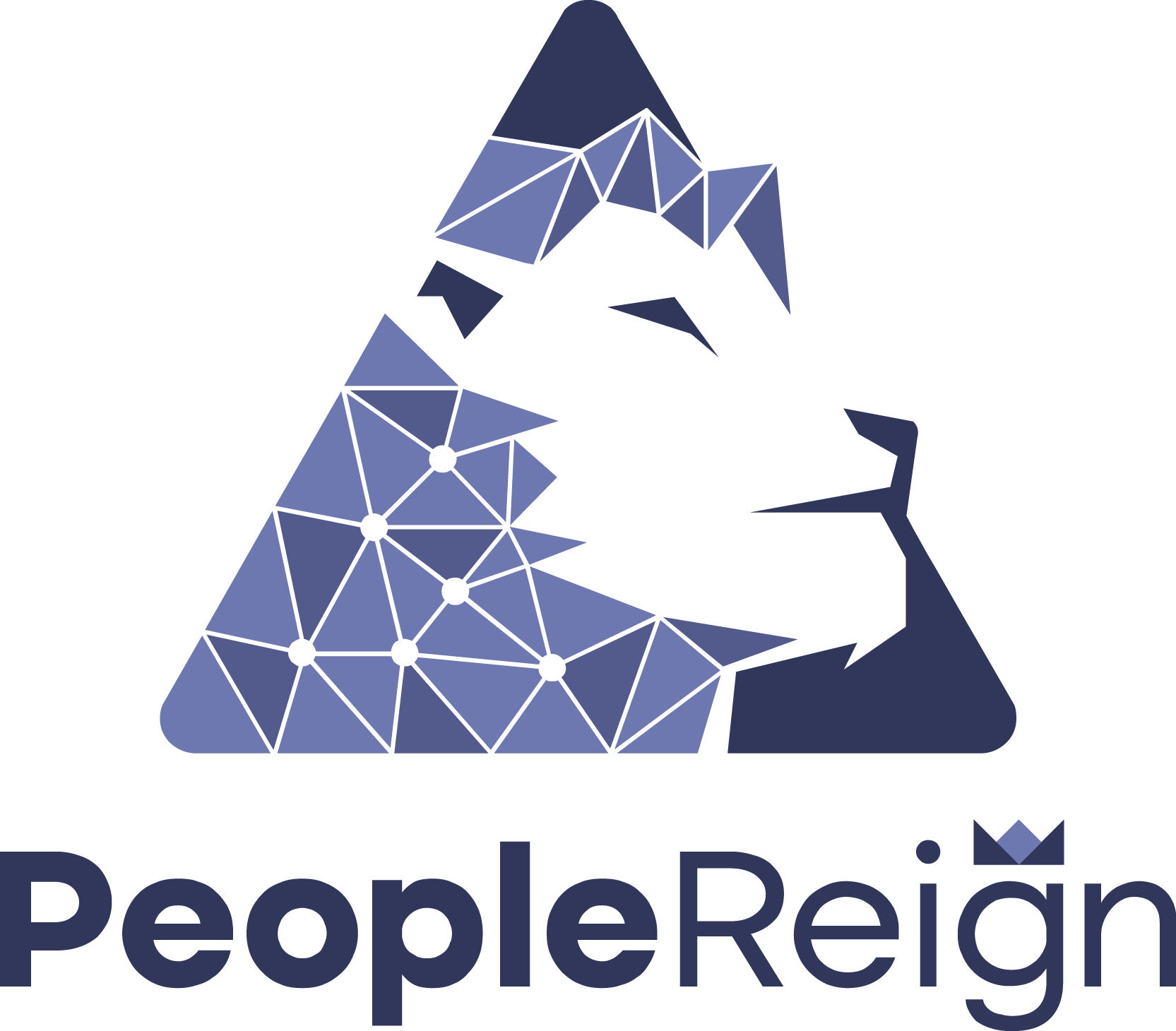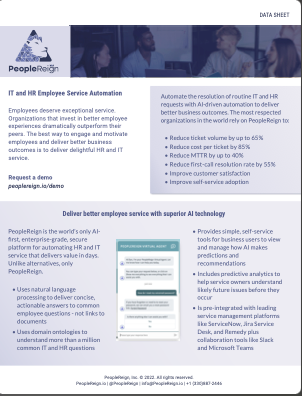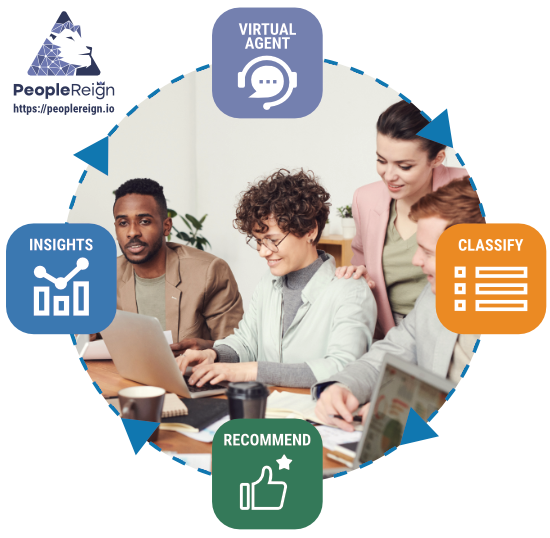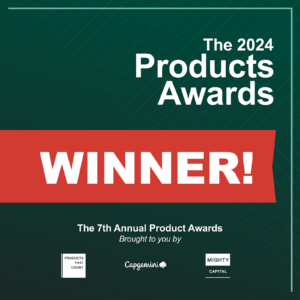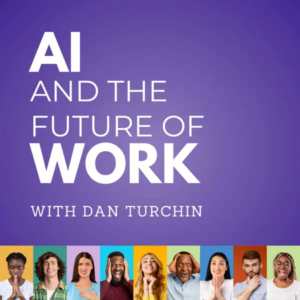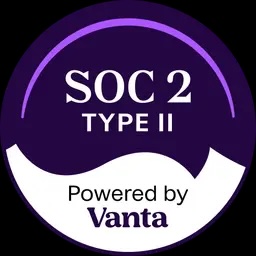This is a transcript from the AI and the Future of Work podcast episode featuring Rene Steenvoorden, Chief Digital Officer at Randstad, discusses how AI humanizes the recruiting process
Dan Turchin (00:17):
Good morning, good afternoon, or good evening, depending on where you’re listening. Welcome back to AI and the future of work. Thanks again for making this one of the most downloaded podcasts about the future of work. If you enjoy what we do, please like comment and share in your favorite podcast app, and we’ll keep sharing great conversations like the one we have today. I’m your host, Dan urchin advisor, insight finder, a system of intelligence for it, operations and CEO of people rein the AI platform for it. And HR employee service we’ve discussed how new technologies are impacting every phase of the employee life cycle from recruitment to candidate evaluation, to onboarding training performance management, and even offboarding we’ve heard from innovators like Brian, to TBY from aura and PSOs from learn worlds about the need for better ways to help employees upskill and reskill for new jobs being created by automation.
Dan Turchin (01:18):
In fact, 40% of global employees say they struggle to learn new skills that were work according to the Ranstad work monitor 2020 report. We’re all looking ahead and wondering what the new employment landscape will look like. When we, as humans coexist with machines in a workplace where AI is ambient, I’ve sat on this show and I’ll repeat it again. AI will be a net creator of jobs for humans. And those on the right side of innovation now will be the ones leading the most successful organizations in a decade. Well, today we get to explore all of these topics with a real expert in space or a in Gordon studied international business administration and a RA this university in Rotterdam, and he joined HR leader. Ranstad in 2016 as their global chief digital officer, where he also serves on their executive board prior to joining Ranstad. Renee was the CIO at Rabobank, a leading Dutch cooperative bank, where he was responsible for it, global innovation and large digital transformation programs. Before that had a distinguished career in tech leadership roles at places like McKinsey and Proctor and gamble. Renee’s been elected CIO of the year twice. I encourage you to follow him. He’s at R Steven warden on Twitter and without further ado, it is my play to Renee, to the podcast. Renee, let’s get started by having you share a little bit more about your background and how you got into this space.
Rene Steenvoorden (02:54):
Yeah. Thank you, Dan. And I’m very to be your show. I I looked at all your guests and it’s a very impressive list. So I’m thankful to be to be one of them. And it’s a fascinating space the future work and especially the influence of AI, two of my big passions coming together. But like you said, I’ve worked in many different company companies and the common theme is that I like where business and it meet each. So I really like, I’m all about applying technology in a business environment. I care less about how the technology works. Exactly. I’m very saying how to make the tech successful in the marketplace. And that’s what I’ve been doing in all kinds of different jobs, starting in it when it was very much the function in the seller.
Rene Steenvoorden (03:45):
and, and to my big delight over the couple of years, it became more and more strategic. And and nowadays, you know, I don’t think there’s many board members that would say that digital is not important. So it is a great area to be in the the tech leadership role. Cause we are so much part of the the overall strategy and the HR space is just, you know, a beautiful place to be. Cause at the end of the day, work is such a big part of our happiness and being able to help people finding the right job or companies to find the right talent and to see them prosper and be happy with guitar as one of the most ING and things you can do and really has society impact. So here I am,
Dan Turchin (04:30):
You have been a two time CIO of the year. Now, the role of the CIO is notoriously short in tenure. What is it that makes the role of the CIO so difficult?
Rene Steenvoorden (04:43):
Yeah, well, and like, I, like we just discussed it, it, the role evolved a lot and nowadays you need to be, be both tech savvy, which also need to be business oriented and digital really move that role of CIO, CDO, CTOs, whatever acronym we use. We really move that role to the forefront of the transformation of, I would say all organizations and then the pandemic make makes those transformations even more crucial, right? Everybody had to jump on the digital ship if you want to get people to work from home and to do digital sales and to get your e-commerce order. So it’s for but it’s also complex because you have to do that with that business mindset, that tech mindset there’s ES constraints, there’s compliance and legislation all thrown in together. And I love it. I’m, I’m still equally excited about this as nearly 30 years that I started with. But it is complex. So it’s I’m thankful to have a great team here at advance that to support me with that.
Dan Turchin (05:46):
So in the us alone, in the fourth quarter of 20, 21, 13 million workers quit their jobs, and that gave rise to this somewhat now cliche term, the great resignation. So as you’re coaching leaders about the importance of taking care of your people to avoid the stem of workers quitting, what’s your coaching and what role does technology play in delivering better employee experiences?
Rene Steenvoorden (06:13):
Well, it’s certainly real. It, it, I would say it’s not really new because if you look at the underlying trends, the scarcity of talent was already very visible before the pandemic. But now that the pandemic is, you know, basically, you know, past this peak, hopefully we do see this massive amount of people moving. It’s at the end of the day, it’s all about retention, right? Can you provide your talent, the right experience? Can you be truly personally engaged with them? And that means that you have to understand what you need to do as a company, how the best people fit, what the kind of best candidate can bring to the table and then engage with that talent, not only, you know, doing recruitment or so doing the onboarding and continuously so really have attention for all of your talents, whether it’s internal or external, cause it’s such a fluid market space nowaday and take a broad mindset.
Rene Steenvoorden (07:10):
the companies that are able to recruit in different states and that people work in a hybrid context, for example, are currently doing very well. Cause they certainly have a way bigger market to to short form. But if you are stuck in the way you worked before and you don’t wanna, you know, expand or broaden in your strategic mindset as an HR leader, or as as a leader of a company yeah. Then, then life for stuff. So it it’s real, but think about experience and think about true deep understanding and and really work on not only attracting people, but also of course, developing them and keeping them and and use different sourcing options
Dan Turchin (07:54):
For job seekers. What do you think is the impact of the did that they have with prospective employers on their call, it enthusiasm or interest in signing up with a new organization?
Rene Steenvoorden (08:10):
Yeah. What we all value customer experience nowadays as part of your, any digital experience. So, you know it’s only understandable that people want to have the same experience in applying for job course, they would buying shoes or, and stuff like that. But the reality is very different. You know, it’s very integr, sometimes the recruiting experience and and also people feel that it’s only there for you when you, when there’s a perfect match and otherwise, well, well thank you, but we’ll find somebody else. That’s something we really want to change. So we invest heavily into customer experience and and things like a better search and matching algorithm and chapels, but really deeply connecting with that kind of modern experience that people expect. So for example we we use step to recruit what you reduce, what we call the black hole of recruiting where you do get an automatic receipt of your resume, but then you’d never hear from a different again.
Rene Steenvoorden (09:16):
Right? Horrible. So we wanna make sure that when you engage with us, you’re upset, but does some quick checking say, look then, you know great, you’re interested. Can you carry 10 kilos cost? The job needs that. And if you say no, then we’ll offer something different, but you don’t have to go through the whole process and own need to be let known after a while that, yeah, Hey, unfortunately, you didn’t see the criteria. So we want do some quick checks. And then we offer for example, self scheduling interview. So people can book themselves directly into the agenda of the consultants. We don’t lose any time. And then the day after you immediately are in agenda with the consultant, talking about the right things and not checking stuff of that we have, we could have done before. That’s typically kind of a modern experience. We, we are aiming for. And and I think that’s also what the clients nowadays expect from us.
Dan Turchin (10:07):
I love that vision for the digital experience. And I love the example that you gave of using the chatbot to be able to provide a more human experience. One of the things we talk about a lot on this show, the irony that we’re actually using chat bots to make the experience more human, right? Yeah. More responsive, you know more, more engaging you gave example of, you know, can you, can you carry 10 kilos if you can’t, maybe we’ll, you know, we’ll find a better fit for you. Yeah. That implies that applicants applying for, let’s say, you know, a job involves a lot of manual labor are prepared to adopt the digital experience that you’re hoping that, you know, will modernize their job search. What do you do when there’s a mismatch between potentially the technology being ahead of where, of, of the digital experience that you, that your market, that your per or your job seekers are prepared for?
Rene Steenvoorden (11:00):
Well, of course it’s a very differentiated marketplace because we we tend to think that LinkedIn is the only view of the world, but those are of course, mostly white collar and also in most, not all sectors are equally representative. And if you take blue collar, for example, that’s a very hot market space still if the number of truck drivers and forklift drivers and all those kind of logistics oriented jobs required is huge. And scarcity is also real there, but technology is different in in such market. I was in in one of our branches in Boston, north and over, and where we just launched amongst all of our chat bots. And I was interviewing people and you really like it, what you think about it? And I noticed a big stack of paper on their desk. I said, well, what are we doing with paper said, well, no, we still have lot candidates.
Rene Steenvoorden (11:50):
They don’t have a resume. So they come to us with our paper and we help them to create a resume. So we have, we have to avoid oversimplifying or overthinking the skills that people have. But on the flip side, everybody has a mobile phone. Nowadays, everybody can use Facebook. Everybody knows how to do an email. So we create folks of all with chat ways to create resumes. So we help people to, to get into that process. And on the flip side, we have very advanced users where we can help them to do different skills. So we have solutions that they can open the skills and we connect to the, of those roles. So they can their their market value. So it takes all kinds of different profiles, right? We have to serve the whole world, not just one segment and the skills are very different per segment. Of course,
Dan Turchin (12:37):
One of the challenges of using any kind of AI technology to make machine driven or automated recommendations is that there’s the potential for bias to creep into the decision making. So let’s say for example hypothetically, you know a blue collar job might be, if you’re making automated recommendations, the data may be biased toward males performing well in a job that requires, you know, lifting of heavy objects. Is there anything that Ranstad, or that your, your teams are doing to measure or mitigate the impact of bias seeking automated decision making?
Rene Steenvoorden (13:16):
No, absolutely. And and this is a theme that of course comes backs in, in many of your podcasts. And I I’m welcome that because we need to talk about it. Right. and first of all, I would say, we have to be careful what we call an AI, because at the end of the day, take, for example a chatbot, many of these steps in AJE bot does gas, not AI is just, you know, if then this, and then if this, then that kind of routine. So I do think we have a responsibility, all of us to advocate the legislations and everybody that, all the stakeholders in this debate to not throw everything on the AI theme and not put the sticker AI on it, let’s, let’s get to the AI cause we do use it for example, matching then of course the next part is making sure, do you have enough data?
Rene Steenvoorden (14:04):
And do you have then unbiased data? And even if you have unbiased data, what does then the algorithm working in biased way? Now this is a fast opened developing field. And we work with universities and other experts to challenge ourselves. We create a number of very clear AI principles. We’ll provide you the link, cuz they’re on our websites. We talk about them openly, cause we want to do HR services in the right way. We’re their market leader. Okay. We, the global leader, we do the at, at a good day, we have 700,000 people working from us in a temporary job, you know, anywhere in the world we place more than 200,000 people, you know, actively in per jobs. And 2 million altogether it’s, you know, it’s big numbers. So we wanna do it in the right way. So we said AI principles, we learned, we did experiments.
Rene Steenvoorden (14:59):
We made our fair share of mistakes. But we put some very clear guard rails in technology wise on AI. And we always let the human do the no choice. Now humans can be biased to it. Let’s be clear. So we advocate our, our consultants and we educate our clients cuz at the end of the day we can do everything right. But then the client also needs the right thing. And if the client asks to, you know, only select, well let’s say your white males, then we should reject them too. So bias is a big topic and it takes human intervention. It take technology interventions and it takes learning. We have to all, you know, embrace it, it’s unstoppable. But we have to do it in the right way. And that’s a fast developing science and I’m happy that you put a port on cause we need to talk about
Dan Turchin (15:51):
Absolutely. Now you saw in the opening, I struggle to even pronounce your last name. So I clearly have a bias toward, toward you know, American perspective.
Rene Steenvoorden (16:02):
Ask to do it again just once enough. Yeah.
Dan Turchin (16:04):
Thank you. I did my best. Something I’d love to know is is with your you know, vantage from Europe, are there differences in digital adoption trends when it comes to the recruiting space in Europe versus what you see in the us?
Rene Steenvoorden (16:22):
Well, that’s interesting. We, we have an approach. We call that customer delight and with customer I’m also responsible for marketing and communications in in Rano and this is something that is between in marketing in it. Because what we do is we do a normal scientific research of satisfaction, drivers of both talents, clients, as well as our own employees. And out of that picture, we do that in 23 markets around the world. We can really compare who drives what, and I can tell you then it’s in every market as same thing. The number one driver for customer delight is what we call humaneness. And humaneness means don’t treat me as a number, treat me as a person. I don’t mind if you reject me for the job, but give me a sign, give me some feedback or just give me a call saying, look for sure if you, we gonna do something else that you Mays is not very technology driven.
Rene Steenvoorden (17:13):
It very consistently human driven. And that’s why our strategy is what we call tech and touch is that combination of people and technology because in the HR market space, a food digital model is still not very successful eventually and people want to have a job or when a client accepts it, tell then they still wanna see each other, smell each other. Feel each that human factor is indistinct you know, INI in our market, which is thank God, right? That makes it fun. However, if you then compare us in the Netherlands or us in the Europe there’s differences compliance and legislation and things like collab collective labor laws is a big thing in Europe. So there’s lots of complexity in each country is different in that. But then again, if you look at states, California has famous for it.
Rene Steenvoorden (18:04):
There’s also many states differences in in the us. So we are very used to handle these kind of complexities and still connecting to each other. In terms of technology adapt adoption many of the HR tech startups and we scan, we have scans more than 4,000 of them. We have a very active innovation and that looks over all these HR tech startups. Most of them are funded in the us and they tend to start at us. But it’s a fair term of companies that also do Europe. So technologywise the main driver comes out of the innovation comes out of the us, but the adoption is, well, I would say roughly the same. I would not. Don’t see that much difference between Europe and us in terms of market adoption of these new technologies.
Dan Turchin (18:49):
So you’re the technology evangelist at a company that is fundamentally a, a people first or a, a human to human company. What, what do you say to leaders at your clients or perspective clients that say, you know, we, we don’t need technology to intervene here, or we want more human touch. We want to your point, you know, we, we want an experience that is human first and where candidates feel like they’re being engaged and listened to. We want less technology and more ability to emphasize the humanness of our process. How would you say, you know, what, what, what’s your counter argument to a leader at a client or perspective client? It feels like that.
Rene Steenvoorden (19:35):
Well, first of all, positive thing is I think they recognize that humaneness is, is, and probably the biggest factor of success. So I would applaud at least on the philosophy. And then the good news is you don’t really have to do the one thing and don’t do the other it’s, you can do both. And we talked about the chatbot but it’s all about deep understanding. Cause you know, let’s face it. If you are a temp worker, you don’t wanna call a result and have a good conversation of why you want to take the day off, right? You just wanna add it into your app and get rid of it. If you wanna exchange the shift to the coworker, it should be easy and nobody care about, you know, how human that experiences. It, it just like, like your banking app that you work and do the stuff.
Rene Steenvoorden (20:20):
But if you talk about your career, then you wanna have a deep, personal conversation. And I could tell you, you can have the best personal conversation with a person advising of the career, but if you don’t know the job market, if you don’t have data about how jobs are developing, what, you know, how much are they in the month? How much money can you earn with it? And how relevant are your skills in the future for it, then that deeply personation doesn’t make sense either. So what our dream is is to be that best personal engagement opportunity driven by deep market insights. That’s why I build all my global data lakes. That’s why I have a big combination of all kinds of market insights, public. And of course you know, our own insights combined into driving, that kind of effect based yet very human interactions. Cause let’s fake it. I don’t know how it works for you then, but have I have three kids and if they’re looking at their careers who advises them, right. Their friends, maybe me, but I don’t know which sector they wanna go, who has market data and still can give you personal advice. That’s our mission. We want to be that personal advisor, that trusted advisor for 500 million people in 2030, that’s our big three.
Dan Turchin (21:40):
So you have three kids. I have two, mine are 12 and 14. And you know, I think about some of the conversations I have with them projecting, you know, what, what are the skills that might be relevant in a decade that, that are future proof call it. Yeah. What do you think? What, what would you, what would you encourage your kids to invest in terms of skills development now you think will never be good kind of candidates for automation in the future workforce.
Rene Steenvoorden (22:08):
Yeah, it it’s thing. I think you, you, you, you made the statement, there’s all kinds of sources about, you know, whether AI will reduce work or be more I’m I’m with you. I think I’m positive. But I I’m very clear, also very convinced it will not be the same kind of jobs that we have today, eh, who have thought that we, we are actually hiring AI specialist, you know, you, five years ago, nobody would’ve even have known what you meant with that. So eventually I think agility to change being openness, you know, intellectual curiosity with also sort of personal risk taking of, Hey, I don’t know how to do this, but I’m still gonna try it. That’s if you can bring that to your kids, that’s the very best skill to have because at the end of the day, whatever the jobs are gonna do, it will not be the job that we think it will be most likely in 10 years from now.
Rene Steenvoorden (23:05):
So that’s, it starts with that agility, openness, and also being able to accept failure. Cause now it will not work in the first time. Now, if you talk about hard skills, clearly, anything data I would encourage I would encourage something around business. Let’s say economics financials, just understanding the basics of that. And then combining that with something human soci Triology, cause at the end of the day, AI will not take an, a take away or replace UN name. So, and you see that the simple middle man jobs disappear, but what is left is either the very personal caretakers people in hospitals that do intakes and work with you and very intellectual AI developers, whatever the middle part is, the part that will change most. So anything that depending on how intellectual you wanna be, but that the to that kinda world I would encourage. Do you agree? What, what do you advise your kids
Dan Turchin (24:11):
To my thinking the skills that are future proof are anything that requires creativity empathy, leadership, I say frequently on this show anything that can be predicted is better left to machines, but anything, anything that requires rational thinking is better left to humans. And now you could debate maybe in 50 years we have what we call AGI or artificial general intelligence. And maybe, you know, we, we can think of, you know, sentient machines, but realistically those are in human skills that I think will compliment prediction tasks that I think are better left to machine. So that’s, I encourage my kids to invest in skills like that, that are never gonna be good candidates for autonomous intervention.
Rene Steenvoorden (25:02):
True. And that’s, and there’s always a lot of complaints about kids spending so much time on videos games and social media, but the good thing is they, they are very skilled in social interaction and handling that kind of references and handling, you know, 20 chats at the same time. I think that’s a, that’s a pretty ING skill given. Well, we just debate for the future.
Dan Turchin (25:28):
I mean, 25 years ago, there was essentially no worldwide web and we couldn’t imagine the implications on the labor market of the internet or the web on top of the internet. And you know, no one would disagree now that it changed the world for the better, you know, there was a time when everyone was bemoaning the loss of the print media jobs and what’s gonna happen to newspapers. And you know what the internet has been a net net net poor impact, or, you know, adverse impacted print media, but nobody to argue that that’s a bad thing, right. With all the amazing new, not just careers, but innovations and ways, you know, it’s made the Wal world small all and change our lives. AI driven automation is the same way, you know, in a decade, you know, we’re gonna look at a completely reimagined workforce, you know, talent pool need for skills jobs. And we won’t even be able to fathom that, you know, a decade previously say in 2022, we, we were even having to debate, you know, the merits of more automation, better personalization, you know, kind of this collaboration between humans and machines. Yeah. You agree with that?
Rene Steenvoorden (26:38):
It’s gonna be very interesting, right? Yeah. I agree with that. And of course it will be stuff that goes wrong and will make mistakes, but therefore principles values and some guards are important. So we do challenge ourselves, Hey, is this a good development, or should we put, you know, some kind of restriction on it? I encourage that debate. We are in the middle of heavy debates with legislators on where AI regulation is going in Europe, for example. And they take HR as their highest risk category. I’m not hundred percent sure whether that’s fair or not, but I’m welcome to the debates. Let’s talk about, right. Let’s that let’s encourage that because that will influence a lot of those new jobs that we will develop, but let’s agree that in 10 years from time from now we do this podcast again then, and see what the, where world went to
Dan Turchin (27:30):
Hope, hope we get that opportunity. So in terms of you mentioned regulation in the us, we’re always very careful to make sure we don’t go astray of European regulation like GDPR. Are there any examples of where let’s say within Randstad you’re advocating for, for the development of some technology, but your innovate, your ability to innovate is constrained by any kind of regulatory frameworks?
Rene Steenvoorden (27:57):
Well well back to your bias example it’s very hard to, to check on the bias if you’re not allowed to have the biased data fields. So for example, I’m not allowed to reregister gender yeah. How can I then check that my algorithm is not discriminating for gender? So there is some illogical parts and we have been successfully you know, finding solutions to kind legisla to get around it. But we have to, we have to, that was hard work, right. We need to convince people why it was illogic, why to check on that kind stuff. So yeah, there’s, there’s, there’s a example within general, I would say I’ve been in banking, I’ve been a supervisory board member of KPMG. So I know accountancy also a bit I could tell you HR is still blisfully open field in ative field compared to to many other sectors. So that’s a good thing, but it comes with responsibility. That means that we have to take extra care as major player ourselves, you, as an influencer and myself, as as, as part of a, the company, we all play a role in them doing it in the right way.
Dan Turchin (29:11):
So beyond like the chatbot example that you mentioned, which I think is a great example. What’s one thing that you think will be different in 10 years about the recruitment process, from the perspective of a candidate?
Rene Steenvoorden (29:24):
Well, don’t just jump on something popular to shout it. But the whole metaphors debate is of course ING, right? And you know, I I’ve been actually part of second life when it lost lungs we even did a recruitment event then probably three people showed up, but it was fun. Right. and, and whether it will happen and whether is being owned by Facebook can debate. But at the end of the day, just look at what happened in the last two years, we went to a full hybrid, setup, it physical and virtual world, and people are now used to it, and everybody knows how to zoom and all that stuff, or teams or Google. It doesn’t matter. It just, oh yeah, I know this, let me do this. So I think that same kind of natural adapt very fast adaption will come also to a virtual world or you know, a meta virtual world.
Rene Steenvoorden (30:19):
and that can, if you very sync opportunities I already did some some pilots where we onboarded people in safety circumstances. So you could you take on your Google or what remember, but one, one of those glasses and you walk into a mega store warehouse, and then you need to indicate where there are safety hazards, and if you did it wrong, certainly there will be fire around you. and, and we have seen some amazing adaption of people, you know, in a realistic way. So I look forward to that kind of virtual training and in much bigger skill than we do now, we just starting with it and, you know, wait, wait for apple to launch probably next two years or so. But once apple and Google and Facebook very truly figured out a variable that everybody likes, then it’s off to the race. So in 10 years time, yeah, I think the meta metas will be real
Dan Turchin (31:18):
Brilliant example, you know, Renee in over 110 episodes, we published, you’re the first person to mention second life, the original metaverse. I love it. I love, I love the reference. You, you and I, and probably only a handful of our listeners are old enough to remember second life.
Rene Steenvoorden (31:38):
Is it exciting or depressing? I’ll lead that, leave that to the Watchers, the audience. Yeah,
Dan Turchin (31:43):
That’s a right exam. We’ll we’ll look for, we’ll look for feedback in the comments. Well, Renee, I gotta I gotta get you off the hot seat. It feels like this went by way too quickly, but not without asking or answering one last question. You’ve had a, an amazing distinguished career looking back on a, your career. What’s what’s your advice for a younger version of her Renee?
Rene Steenvoorden (32:05):
Yeah. I love that question. I would say, you know, it relax and enjoy the ride. Cause when you are young, you are insecure. You think, oh, I need to get that job. And I wanna be that, oh, you know, it’s just an Beijing role. Can I be a CIO, but nobody wants me. And you underestimate how open the voltage for you. If you are, if you are starting your career, you can basically be anywhere, do anything you like if you just put your mindset to it. And of course not, everything works. And sometimes it feels, but, you know, there’s so much opportunity to learn and to be flexible, there’s so much ways you can develop your career, you know, be more relaxed about it. Be more confident and enjoy the experience. That’s I think the best advice I could give my younger soul, but anybody out there listening, and it doesn’t matter whether you are 25 or to be 40 or even 50 or 60, there’s always different jobs.
Rene Steenvoorden (33:04):
You can go nowadays. There’s so much different ways you can develop your skills in cheap rates, right? It doesn’t cost any money. You can be a bit developer, you know, in three months and go different routes. If you want to, or you can go into healthcare. This people want to have your support way more than you think. But it takes somebody that shows you that and gives you that insight into the marketplace. So find somebody that can coach you come to a company that knows the market and just enjoy the right
Dan Turchin (33:35):
Renee. Let’s make sure your kids listen to this and my kids listen to it. That’s that’s great advice.
Rene Steenvoorden (33:42):
Thank you. So
Dan Turchin (33:44):
Where can our audience learn more about the work that you’re doing about your, the perspectives on the future of work that you’ve shared any place you could point ’em to?
Rene Steenvoorden (33:53):
Yeah, well, well, we publish some insight for trends in the, in the labor markets. We’ll make sure we add the links to your to your podcast that if you wanna have some external experts, I lost the the advice of your version you know, very insightful how he brings everything together lots of interest there. And we also have a lot of publications on our job board com, which is also I think very helpful. So if you are trying to expand your horizons, we’ll make sure that the links are in the, in the postcode.
Dan Turchin (34:30):
Excellent. And I’ll make sure in the show notes for the episode include those as well.
Rene Steenvoorden (34:34):
Thank you,
Dan Turchin (34:35):
Renee. We’re gonna definitely continue this conversation. Like you said, as some of these trends play out, you’re you’re gonna come back on the hot seat and we’re gonna have another version of this. How does that a sound
Rene Steenvoorden (34:45):
Really enjoyed this conversation? And there’s so much things happening in the world of HR and the world of work and AI. So I can imagine that there will be plenty of topics always happy to come back.
Dan Turchin (34:59):
Excellent. Well, likewise, I love this one. Thanks for, thanks for hanging out well, that’s that’s all the time that we have for this week. Great discussion with Renee. We are gonna be back next week with another fascinating guest. I’m your host, Dan urchin for AI and the future of work.
